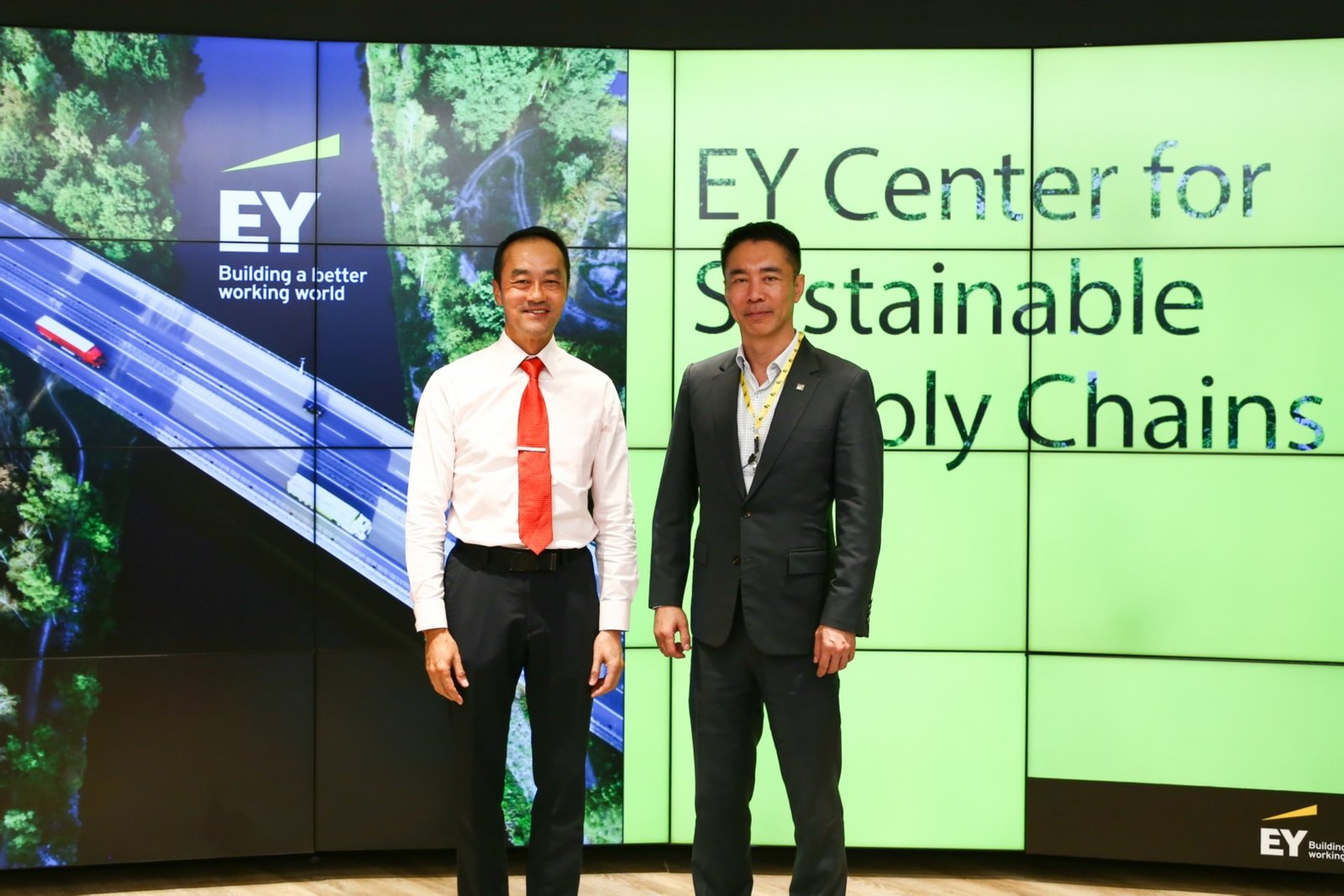
Photo Credit: EY Singapore
The EY, has launched new EY Center for Sustainable Supply Chains in Singapore. The Center is dedicated to helping companies in Southeast Asia accelerate the adoption of sustainable practices for resilient supply chains. Dr. Koh Poh Koon, Senior Minister of State for Sustainability and the Environment, and Manpower, officiated the opening of the Center.
The Center is co-led by Atul Chandna, EY Asia-Pacific Supply Chain Leader, and Praveen Tekchandani, Partner, Climate Change and Sustainability Services at Ernst & Young LLP, and comprises a team from the Climate Change and Sustainability Services practice and Supply Chain Consulting practice.
The Center provides tailored service offerings that help organizations at every stage of their supply chain journeys, providing them with practical guidance on achieving quick wins and executing long-term strategies. Leveraging strategic collaborations with alliance partners, the Center offers innovative technology solutions that are supported by research insights on the latest in supply chain and sustainability trends to help businesses stay ahead of the curve.
Singapore, as a leading supply chain and logistics hub in Asia, makes an ideal location to set up the Center. The intersection of trade flows and vast numbers of companies anchored in the country, from multinational corporations to regional and local companies, offer immense potential to create an impact at scale in driving sustainable supply chains.
Liew Nam Soon, EY Asean Regional Managing Partner, and Singapore Country Managing Partner, Ernst & Young LLP, says "The EY Center for Sustainable Supply Chains in Singapore is well-positioned as a hub to support companies in the region to develop and elevate sustainable practices for their supply chains. We hope to also contribute to the broader supply chain ecosystem and help the sector and its workforce deepen capabilities in sustainability through the innovative technologies and collaborative approaches that the Center offers.”
Supply chains are new frontiers for sustainability
With escalating concerns over climate change and stakeholders placing greater emphasis on environmental, social and governance (ESG) issues, companies are under greater impetus to work toward net zero goals. Supply chains account for a significant proportion of an organization’s greenhouse gas emissions and operating costs. The sustainability of supply chains therefore comes under scrutiny given its impact on an organization’s net zero ambition.
Praveen Tekchandani, Partner, Climate Change and Sustainability Services at Ernst & Young LLP adds, "Southeast Asia, as one of the major trading and manufacturing hub, plays a key role in global decarbonization effort. More than 70% of an organization’s footprint is from indirect emissions from its upstream and downstream supply chain activities, hence supply chain management is an essential part of any corporate decarbonization roadmap. Net Zero can only be achieved with an effective stewardship approach across the supply chain, and while this is challenging, it is a necessary step for companies to achieve their sustainability goals.”
Diversifying sourcing, identifying GHG emissions, traceability and visibility, and circular business models are benefits for entrepreneurs
EY Center for Sustainable Supply Chains offers companies the opportunity to achieve sustainable and diverse sourcing, decarbonization of the value chain, traceability and visibility of supply chain information in real-time, and circular business models.
Many organizations struggle to embark on a sustainability journey due to lack of visibility of their supply chain and emissions data, as well as comprehensive ways to measure sustainability progress. The key barriers for businesses in implementing a sustainable supply chain include technological limitations, a lack of visibility, regulatory complexities and scalability concerns.
Atul Chandna, EY Asia-Pacific Supply Chain Leader says, “Supply chains can be very complex and transparency is an issue that many companies face. Following the supply chain disruptions from the pandemic and global geopolitical disputes, resilience and sustainability in the supply chain have become more important than ever. However, beyond the commitment from the board and management, there needs to be the right strategies, systems and processes on the ground to put intention into action.”




